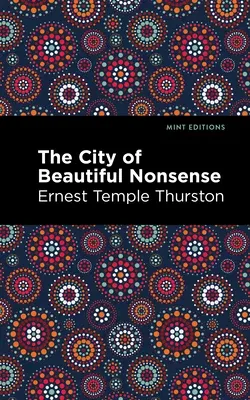The City of Beautiful Nonsense (1909) is a novel by Ernest Temple
Thurston. After a decade of working odd jobs while pursuing his literary
interests, Temple Thurston finally broke through to a popular audience
with this novel of romance and wonder. Adapted twice for the cinema and
followed by a sequel entitled The World of Wonderful Reality (1919),
The City of Beautiful Nonsense is a stunning portrait of Edwardian
London and turn of the century Venice, two of the world's most fabled
cities. "It was half-past seven in the evening. At half-past seven it is
dark, the lamps are lighted, the houses huddle together in groups. They
have secrets to tell as soon as it is dark. Ah! If you knew the secrets
that houses are telling when the shadows draw them so close together!
But you never will know. They close their eyes and they whisper." In
flowing, meditative prose, Temple Thurston weaves a tale of love at
first sight exploring themes of religion, tradition, and modernity.
After their first meeting in a silent, candlelit church, John and Jill
begin running into one another by chance on the streets of London. As
they strike up a relationship, they share their innermost feelings and
dreams for the future, learning about themselves as much as they do of
one another. Drawn to the city of Venice, John wants nothing more than
to bring Jill there, to grow their love in a city seemingly built for
lovers. Heartfelt and dreamlike, The City of Beautiful Nonsense is the
type of novel that stays with you long after you've read its last words.
With a beautifully designed cover and professionally typeset manuscript,
this edition Ernest Temple Thurston's The City of Beautiful Nonsense
is a classic work of British literature reimagined for modern readers.


